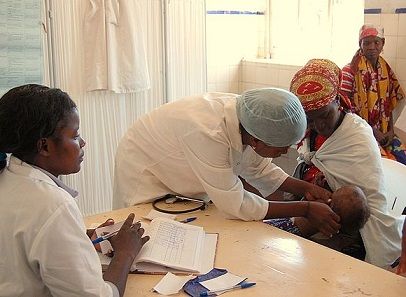During pregnancy, in countries where the disease is rife, a woman faces a much higher risk of contracting malaria and suffering the associated complications that can also threaten the developing foetus. Researchers at the University of Copenhagen have been working on a vaccine that is especially targeted at pregnancy-associated malaria, a disease estimated to kill 220,000 people every year, and have published their findings in the Clinical Infectious Diseases journal.
The vaccine is now a step closer to being marketable, as clinical trials have shown promising results. “It’s a significant milestone to show that our vaccine is completely safe and gives people exactly the antibody response in the blood that we have been aiming at,” said Morten Agertoug Nielsen, an associate professor at the institute for immunology and microbiology and main author of the study.
The next step is a so-called ‘Phase 2 clinical trial’ to make sure, as well as being safe, that the vaccine is actually able to prevent the disease. For this, the researchers are working together with hospitals in Benin. The results of this are expected to be available during next year.
Sea meadows can trap more CO2 than rainforests
It sounds like a joke but it is real enough: researchers from Hamburg University have been burying teabags in the beach meadows by the Wadden Sea, a system of intertidal sand and mud flats stretching from the Netherlands to Denmark. The purpose of this strange behaviour has been to see whether plant matter or the sea meadow itself is a better CO2 trap. The tea bags simulate plant matter (or the rainforest if you like) and it is easy to see how much of the contents have disappeared or rotted away. The German researchers discovered that the meadow was actually more effective at trapping CO2. “It has something to do with the composition of the soil. There is a lot of water and moisture, so decay is slower,” explained Fanø’s nature consultant Marco Brodde. He added that silting from storms washes new water, sand and mud in across the beaches. The research should be able to give indications as to which natural areas should be specially protected because they have a significant part to play when it comes to climate management.
Making grass more palatable as food
Researchers and industry representatives have been working together on a project under the auspices of the Technical University of Denmark (DTU) to make the exploitation of protein from grass profitable. The project is investigating ways to find the most economical way to extract the greatest amount of protein and also to remove the substances that cause the grass to taste off-puttingly bitter when it comes to food for human consumption. The companies will develop a series of products such as snacks, drinks and alternatives to meat that contain grass protein. The project is also going to investigate the composition of nutrients and toxins that could potentially contain allergens.
Denmark a pioneer in monitoring antibiotic consumption
A number of Asian countries have expressed an interest in Denmark’s DANMAP system for monitoring antibiotics. The system also tracks antibiotic resistance in humans and animals. The UN’s health organisation WHO regards resistance to antibiotics as one of the greatest threats to human health, and a number of Asian countries are at present establishing monitoring programs. Over the last six months, experts from the Technical University of Denmark’s national food institute have visited Thailand, China and Hong Kong.
Amager incinerator investigating CO2 capture
The iconic-designed, eco-friendly and well-known incineration facility Amager Bakke is investigating the possibility of helping Copenhagen Municipality attain its climate goal by capturing around 160,000 tonnes of CO2 from the plant’s emissions, reports Politiken. The CO2, much of which derives from plastics mixed in with household rubbish, can either be stored or potentially used for other purposes.











